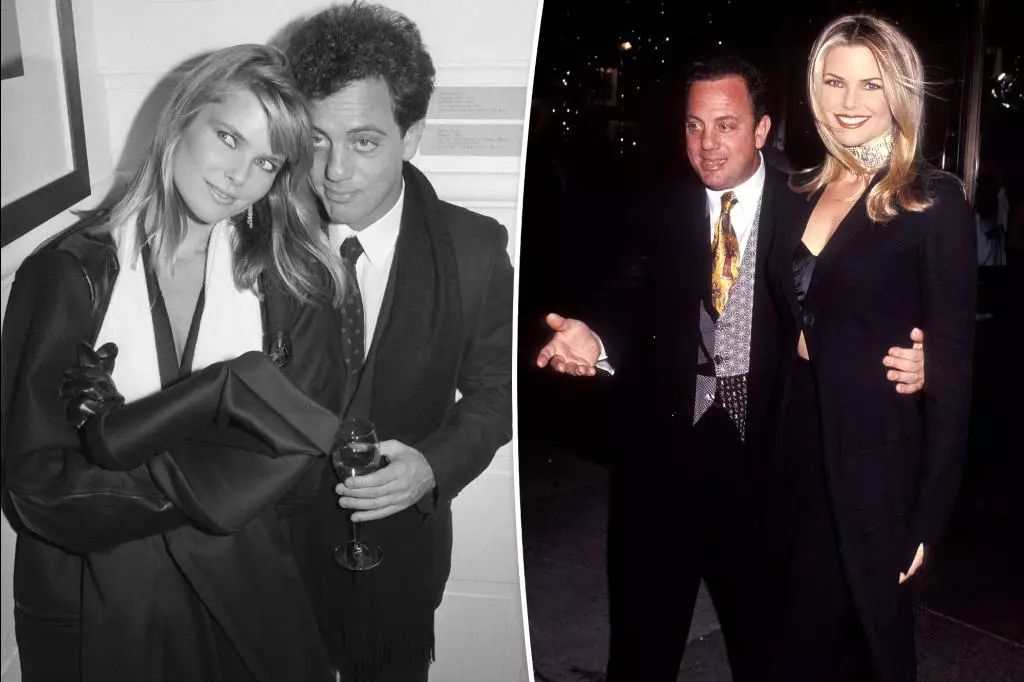Christie Brinkley’s recent memoir, “Uptown Girl,” has stirred conversations not only for its explorations of fame but also for its stark revelations about the tumultuous relationship she shared with her ex-husband, Billy Joel. Brinkley’s reluctance to discuss Joel’s battles with alcoholism—particularly the incident where he consumed spaghetti straight from the pan—sheds light on her internal struggles during their marriage. The anecdote underscores a pervasive theme in the lives of individuals affected by substance abuse: the intense mixture of love and fear that often permeates such partnerships.
Brinkley conveyed to the Los Angeles Times that her choice to disclose this intimate moment was fraught with hesitation. “It demonstrates what I was up against,” she reflected. This sentiment resonates with many who deal with the double-edged sword of supporting a loved one while grappling with their erratic behavior. In her portrayal of Joel, Brinkley captures not only the chaos of his drinking but also her deep-seated commitment to him, revealing a personal narrative that extends beyond mere celebrity gossip.
The Silent Suffering of Love
One of the most poignant aspects of Brinkley’s memoir is her observation that she chose silence in the face of chaos. She refrained from discussing Joel’s drinking habits, even with those closest to her, illustrating how isolation can be a hallmark of relationships entangled with addiction. In hiding their problems from family and friends—“I was 100% dedicated to Billy,” she stated—Brinkley took on the burden of his struggles alone, a choice that many partners of addicts make in efforts to protect their loved ones and family unity.
Alcoholism, as Brinkley recognizes, is more than a personal demon; it affects the entire family structure. Her decades-long commitment to Joel, during which their daughter Alexa Ray was raised, shows the depth of her investment, even as she oscillated between love and fear—a dynamic that anyone familiar with an addicted partner can recognize all too well. Brinkley’s narrative serves as a unique entry point into understanding how addiction can fracture the very fabric of family life.
From Love to Loss: The Painful Decision to Walk Away
Despite her unwavering dedication, Brinkley recounts the heartbreak of recognizing that her relationship with Joel was unsustainable. As his alcoholism spiraled and was compounded by public affairs, the emotional toll became unbearable. Brinkley ultimately decided to file for divorce in 1994, not because she wanted to end their relationship, but rather as an acceptance that “his drinking was bigger than the both of us.” This realization of helplessness—that love alone is not always a sufficient remedy for addiction—carries profound implications.
As she reflects on this tumultuous time, Brinkley reveals the loneliness that can pervade a relationship plagued by addiction: “when the relationship isn’t functioning the way you want it to be anymore, that’s the worst kind of loneliness.” This intimate consideration speaks to the complexities of love and loss in the context of addiction, a theme that resonates deeply within many narratives on the subject.
Curating a Friendship After Adversity
Interestingly, Brinkley has managed to cultivate a friendship with Joel after their separation, showcasing a nuanced understanding of moving forward while cherishing past memories. As she revealed her current interactions with him, marked by mutual respect during family visits, it signifies a form of healing that transcends their troubled past. “He lives mainly in Florida,” Brinkley stated, “but when he comes by to see Alexa, he’ll come in and say hello.” This friendly rapport is not just a personal victory for the couple; it may serve as an encouraging reminder that even the most shattered relationships can evolve into something constructive post-crisis.
The contrast between their chaotic love story and their present relationship encapsulates the ongoing struggle faced by families dealing with addiction. Brinkley’s journey highlights that while addiction can bring devastation, it does not have to extinguish the fundamental human connections we cherish, illuminating the path from suffering to healing.
In sharing her story, Brinkley is not merely recounting a past rife with challenges; instead, she offers a beacon of hope to those navigating the murky waters of addiction, emphasizing that love, while it can sometimes lead to pain, also possesses the potential for profound transformation and recovery.
